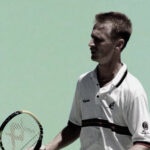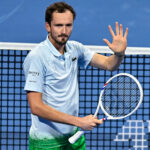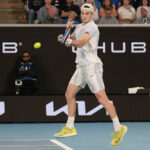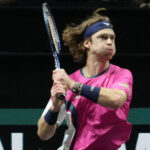December 12, 1993: Korda edges home favourite Stich to win Grand Slam Cup in Germany
A day after he saved match points to beat then No 1 Pete Sampras, Petr Korda wouldn’t be denied in the final of the lucrative, short-lived Grand Slam Cup
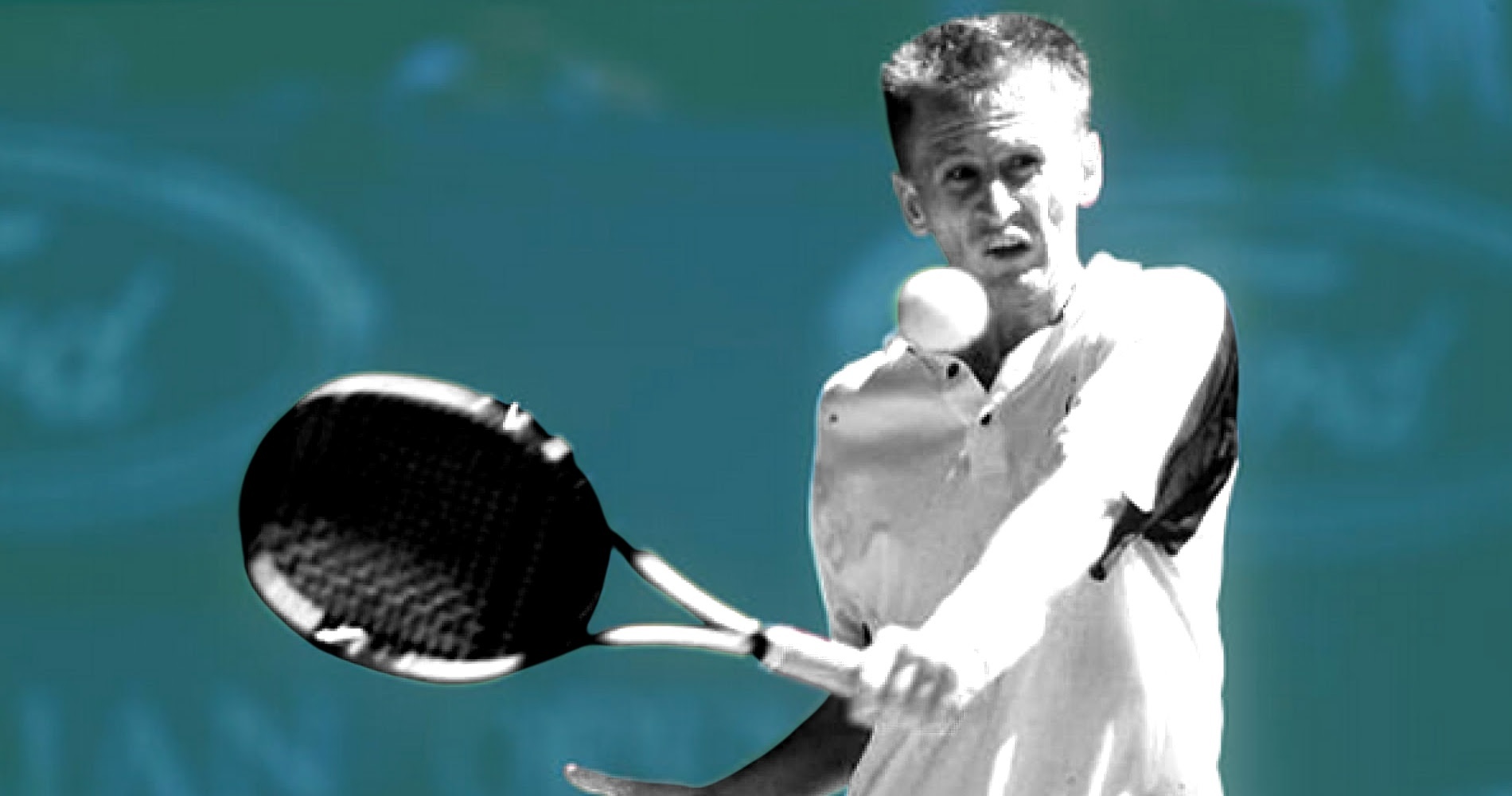 Korda OTD 12_12
Korda OTD 12_12
What happened EXACTLY ON THAT DAY
On this day, December 12, 1993, Petr Korda, who had already defeated world No 1 Pete Sampras in the semi-finals (13-11 in the fifth set), edged world No 2 Michael Stich (2-6, 6-4, 7-6, 2-6, 11-9) in the final of the Grand Slam Cup in Munich. It was at the time by far the most important title of his career, and he took home $1.625 million, a record back then.
The players: Petr Korda and Michael Stich
- Petr Korda: Czech lefty
Petr Korda, a left-hander with classic technique, was born in 1968 in Prague. He turned professional in 1987 and established himself in the top 100 in 1989, the year he reached his first final on the Tour, in Frankfurt (lost to Kevin Curren, 6-2, 7-5). He claimed his first title in 1991 in New Haven by defeating Goran Ivanisevic (6-4, 6-2), but his breakthrough year at the top level was 1992. That year, not only did he win three tournaments (Washington, Long Island and Vienna), but he also finished runner-up to Jim Courier at Roland-Garros (7-5, 6-2, 6-1).
Thanks to those results, he reached No 5, in July. In 1993, he reached the quarter-finals at the Australian Open (lost to Courier, 6-1, 6-0, 6-4), but in Paris, he lost in the second round to Marc-Kevin Goellner, and as a consequence, exited the top 10. Reaching the fourth round at the US Open saw him qualify for the Grand Slam Cup.
- Michael Stich: rising German
Michael Stich, a serve-and-volleyer from Germany, lived in the shadow of his countryman Boris Becker during his first year on the Tour. Born in 1968 like Korda, he broke into the top 100 in 1989, claiming his first professional title in Memphis, in 1990 (defeating Wally Masur in the final, 6-7, 6-4, 7-6). In 1991, his career took off when he reached the Roland-Garros semi-finals (lost to Jim Courier, 6-2, 6-7, 6-2, 6-4), but the best was yet to come: four weeks later, he triumphed at Wimbledon, defeating both Stefan Edberg and Becker, who had participated in the three previous finals at the Championships.
In the final, he played flawless tennis to stun his fellow German in straight sets (6-4, 7-6, 6-4). After a slightly disappointing 1992 season, although winning the Grand Slam Cup, he was back on track in 1993. After reaching the Australian Open semi-finals (lost to Courier, 7-6, 6-4, 6-2), he claimed no fewer than six titles, including the Stockholm Masters 1000 and the Masters Cup, where he defeated world No 1 Pete Sampras in the final (7-6, 2-6, 7-6, 6-2). These outstanding results propelled him to a career best world No 2.
The place: Grand Slam Cup, Munich
The Grand Slam Cup was established in 1990 by the International Tennis Federation to compete with the ATP’s year-end Masters Cup. The 16 best-performing players in the year’s Grand Slam events qualified, and after the two first rounds were played under a best-of-three sets format, the semi-finals and finals were best of five sets.
The Grand Slam Cup was a controversial tournament. Paying out the highest prize money of any tournament in tennis, it didn’t distribute any ATP points, though. On top of that, it was held in December, after the top players had already played a long season. As a consequence, the best players didn’t always attend the event, and when they did, there was suspicion that they were just coming to cash their cheques without necessarily giving their best. The former champions were Pete Sampras, David Wheaton and Michael Stich.
The facts: KORDA WINS ANOTHER EPIC
After having reached world No 5 in 1992, Petr Korda had a disappointing 1993 season. His results were far from being terrible, as he was still No 12, but they were below his expectations. Still, he qualified for the Grand Slam Cup, which gave him a last opportunity to shine in 1993. After defeating Alexander Volkov and Sergi Bruguera, he topped world No 1 Pete Sampras in an epic semi-final 3-6, 7-6, 3-6, 7-6, 13-11, saving match points in the fourth set.
His opponent in the final, Michael Stich, had been on fire. Since his US Open first-round loss, he had triumphed in Basel, Stockholm and at the Masters Cup, and in his spare time, had led Germany to the Davis Cup title, undefeated in singles and doubles during the final against Australia. World No 2, he had been pushed to play five sets in his Grand Slam Cup semi-final against Stefan Edberg (2-6, 3-6, 6-3, 6-3, 6-1).
In this context, it seemed obvious that whoever had recovered the best from his previous efforts would win the final. However, neither of the contenders was willing to admit defeat as Stich and Korda went into a fifth set.
In the decider, the Czech obtained two match points at 5-4 on his opponent’s serve, but the German saved them, before finishing the game with one of the 30 aces he hit. The players then successfully held their serves, Korda saving five break points until he finally broke Stich’s serve, sealing the last set 13-11 after four hours, 46 minutes of play to down the defending champion.
“It is a great moment in my life, and I would say after a bad season like I had this year, maybe I deserve it,” said Korda. “I work hard for it, and I am very happy and because I beat the No 1 player in the world, No 2 player in the world and most important, I beat one of the hottest players at the moment.“
“My legs just gave up,” Stich said, according to The Washington Post. “I had more right to be tired. He had a tough match yesterday, but that happens in every tournament.”
What happened next
Petr Korda’s career peaked in January 1998 when he triumphed at the Australian Open for his lone major, defeating Marcelo Rios in the final (6-2, 6-3, 6-3). Only months later, however, he tested positive for nandrolone, which would push him to retire in 1999. His son Sebastian is currently a player on the rise, winning his first ATP title in 2021, while daughters Nelly and Jessica are among the best golfers in the world.
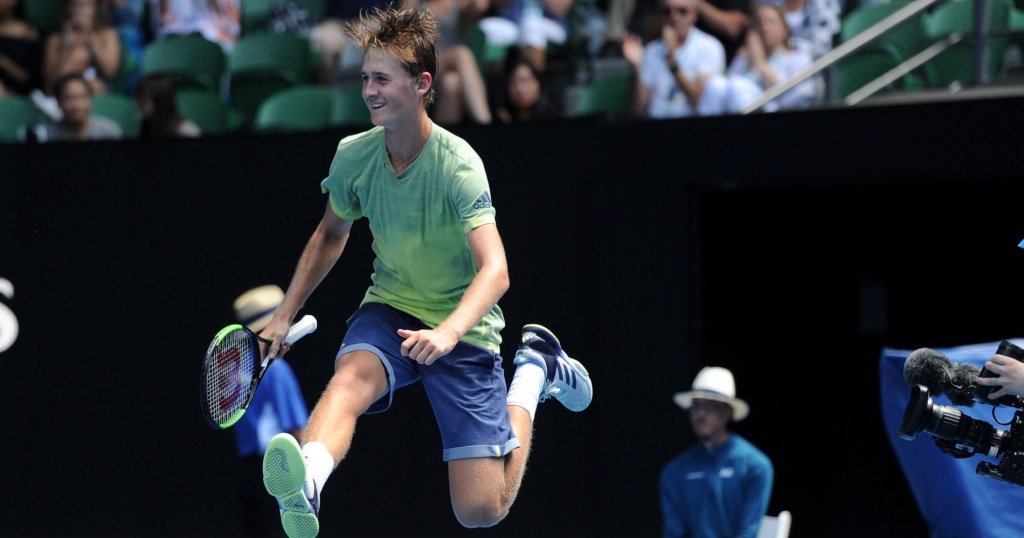
Michael Stich would reach two more Grand Slam finals in his career, at the 1994 US Open (defeated by Andre Agassi, 6-1, 7-6, 7-5) and 1996 French Open (lost to Yevgeny Kafelnikov, 7-6, 7-5, 7-6). The German would retire in 1997, after his semi-final loss to Cédric Pioline at Wimbledon (6-7, 6-2, 6-1, 5-7, 6-4).
As for the Grand Slam Cup, it would survive until 1999. In 2000 it would merge with the Masters Cup into one year-end tournament.
